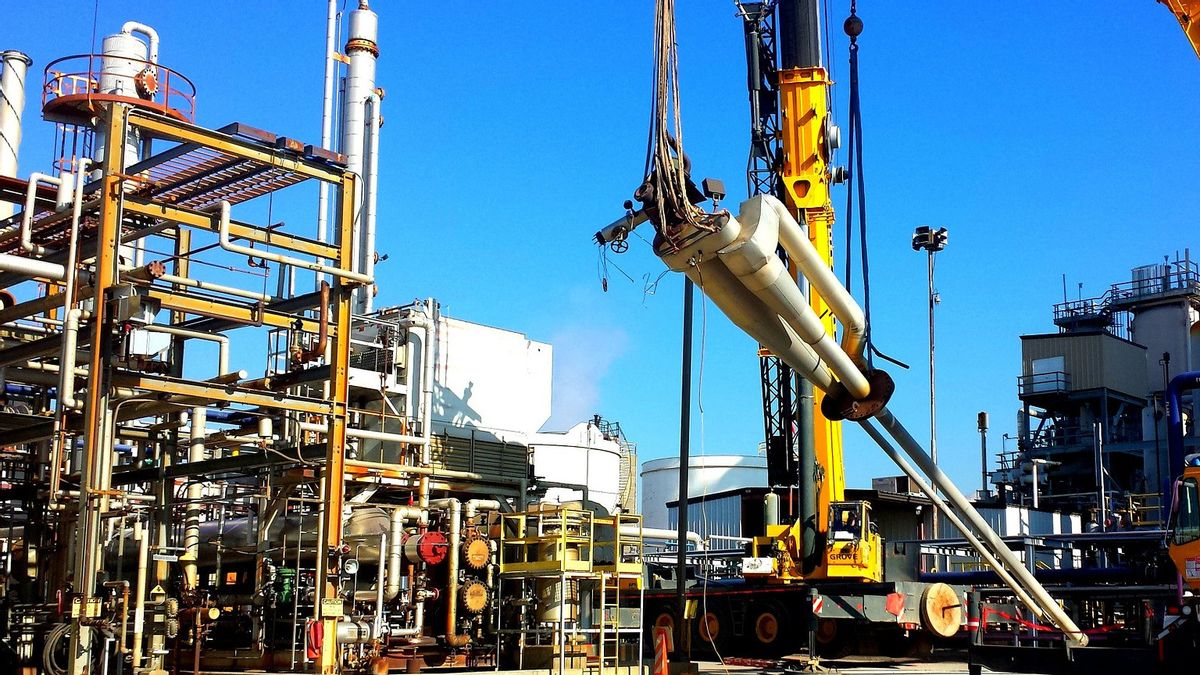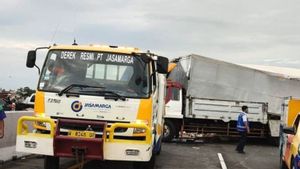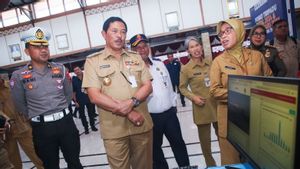JAKARTA - The national upstream oil and gas industry is not only a producer of state coffers, but also supports the regional economic growth. One of them, the Banyu Urip Field Project, Cepu Block, contributes up to IDR 2.18 trillion for Bojonegoro, East Java.
Deputy of Operations for the Special Task Force for Upstream Oil and Gas Business Activities (SKK Migas) Julius Wiratno said, at the national level, every US $ 1 million oil and gas investment can provide added value of US $ 1.6 million, adding to gross domestic product (GDP). 0.7 million US dollars, and creates jobs for more than 100 people. This contribution excludes state revenues from the upstream oil and gas sector.
"Apart from that, there is also support from the upstream oil and gas industry for regional development, both direct and indirect impacts," he said in an online discussion entitled "The Role of the Upstream Oil and Gas Sector: Moving the Wheel of the Regional Economy", quoted on Sunday, December 20.
He explained, the direct impact of the existence of the upstream oil and gas industry for this region includes oil and gas production sharing funds (DBH) which have been regulated in legislation, 10% participating interest (PI), regional taxes and regional levies (PDRD). Then, the creation of local goods and service supply businesses, absorption of local labor, and social responsibility. Furthermore, the facilities to support oil and gas operations can also be used by the community, as well as a gas supply for regional electricity, industrial fuel, and derivative industrial raw materials.
For the indirect impact, he said it came from companies supporting the upstream oil and gas business. In detail, local taxes and levies (PDRD), business providing local goods and services, absorption of local labor, and disbursement of social responsibility (TJS).
"For example, the Banyu Urip project contributed Rp2.18 trillion to Bojonegoro which includes local vendors, local workers, local materials, and others," said Julius.
Julius added that the construction of the Cepu Block production facility involved more than 18 thousand workers and 460 subcontractors. This project also encourages the growth of supporting services such as hotels, restaurants, transportation, and contract houses. In addition, there is also skills training for local workers regarding education, health, small business development and socioeconomics.
"This project also contributes to local economic growth in Bojonegoro, with an example of 19.47% in 2015, referring to BPS data," said Julius.
Meanwhile, Chairman of Commission VII DPR RI Sugeng Suparwoto agreed with the large contribution of the upstream oil and gas industry to the regional economy, especially with the 10% PI allotment for BUMDs. Ownership of PI by BUMD is based on a business scheme (business to business / b to b), where if the region is capable, it can take the share rights. However, local governments also partner with companies if they cannot finance, or do not, take this share. The reason is, the need for funds to take ownership of this PI is quite large.
"This is the potential for how oil and gas contribute directly to the regional economy," he said.
One thing that must be considered, continued Sugeng, is that the regional government must change its mentality in order to enjoy the impact of the existence of the upstream oil and gas industry in the region, namely from bureaucracy or politicians to entrepreneurs. This is to prevent the existence of oil and gas in the regions from only becoming a political issue between political power holders in the region, which in turn has an impact on the national oil and gas investment climate.
"In oil and gas, if the local government switches mentally from bureaucracy, politicians to entrepreneurs, I think that is a big opportunity for oil and gas. Remember, oil and gas management requires sophisticated technology and large capital, we still need foreign investors, "said Sugeng.
On the same occasion, Senior Vice President Production ExxonMobil Cepu Limited, Muhammad Nurdin, is committed to continuing to collaborate with the government to improve the economy in the country.
"Good joint collaboration between the central and regional governments, the community as well as investors and partners is needed to revive the national and regional economies," he said.
The English, Chinese, Japanese, Arabic, and French versions are automatically generated by the AI. So there may still be inaccuracies in translating, please always see Indonesian as our main language. (system supported by DigitalSiber.id)













